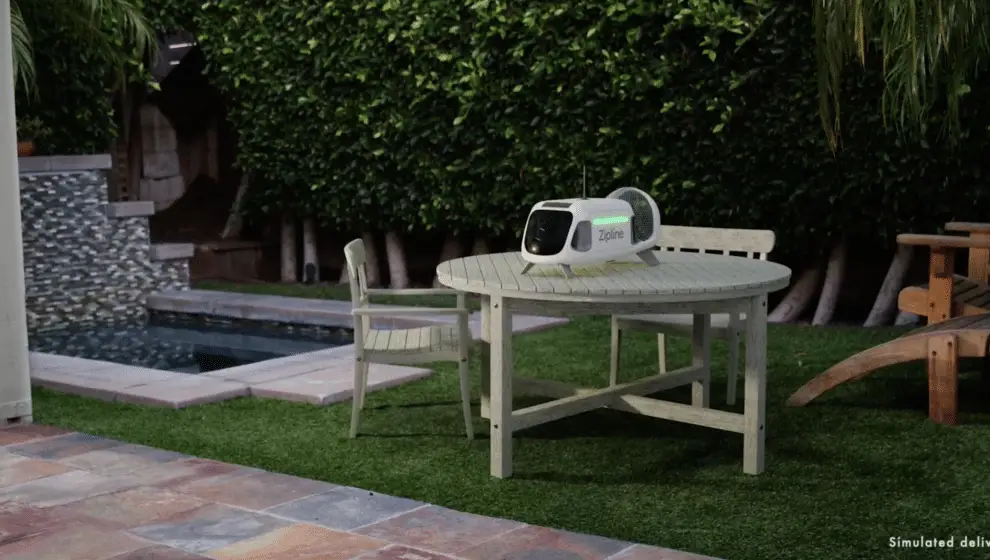The fastest delivery option is almost ready for takeoff as autonomous drone delivery is nearing commercialization.
Key Details
- Two leading drone delivery companies, Zipline and Wing, are preparing to start drone deliveries in the U.S. over the next year.
- Zipline recently showcased its next-generation delivery drone, which includes an autonomous drone called the droid attached with a tether to gently lower the package to its delivery destination and can complete deliveries in a 10-mile radius.
- Google-owned Wing announced its drone-delivery network that will work similarly to a ride-hailing network where the company will dispatch thousands of drones as efficiently as it would send a driver.
- Pending regulation rules, the two companies plan to begin commercial deliveries in the U.S. by 2024.
Why it’s important
Drone delivery has been a topic for discussion for years as many businesses have strived to create a small drone to deliver packages to customers efficiently, and the idea is officially becoming reality.
Drone delivery is faster and cheaper as it mostly cuts out delivery trucks. The drones are autonomous and battery-operated, allowing for fewer labor costs and no emissions from typical large delivery vehicles.
Many companies have worked to release a delivery drone, including Amazon and Walmart, but have faced setbacks mostly due to aviation regulations. The Federal Aviation Administration is working to make rules for autonomous drones to fly in the air out of a controller’s eyesight.
The drones have a weight limit but will be able to deliver most necessary items, including small groceries, medications, and food.
Zipline has been working over the last few years to create a drone that can carry packages quickly and quietly to customers’ locations without using a parachute to drop the items. It has officially created the bot to do it.
“We have built the closest thing to teleportation ever created—a smooth, ultrafast, convenient, and truly magical autonomous logistics system that serves all people equally, wherever they are,” says Zipline co-founder and CEO Keller Rinaudo Cliffton.
While Zipline was working to create a perfect delivery, Wing was developing a flawless network for its drones. The company has made a continuous network for the drones, comparing it to an Uber service.
The idea is that businesses can create a location with many different orders, and the drone will pick up the item, take it to the customer and repeat the process continuously until all orders are fulfilled.
“Up to this point, the industry has been fixated on drones themselves—designing, testing, and iterating on aircraft, rather than finding the best way to harness an entire fleet for efficient delivery,” says Wing CEO Adam Woodworth.
The two companies have been testing the drones overseas and hope to bring them fully to the U.S. by 2024.
